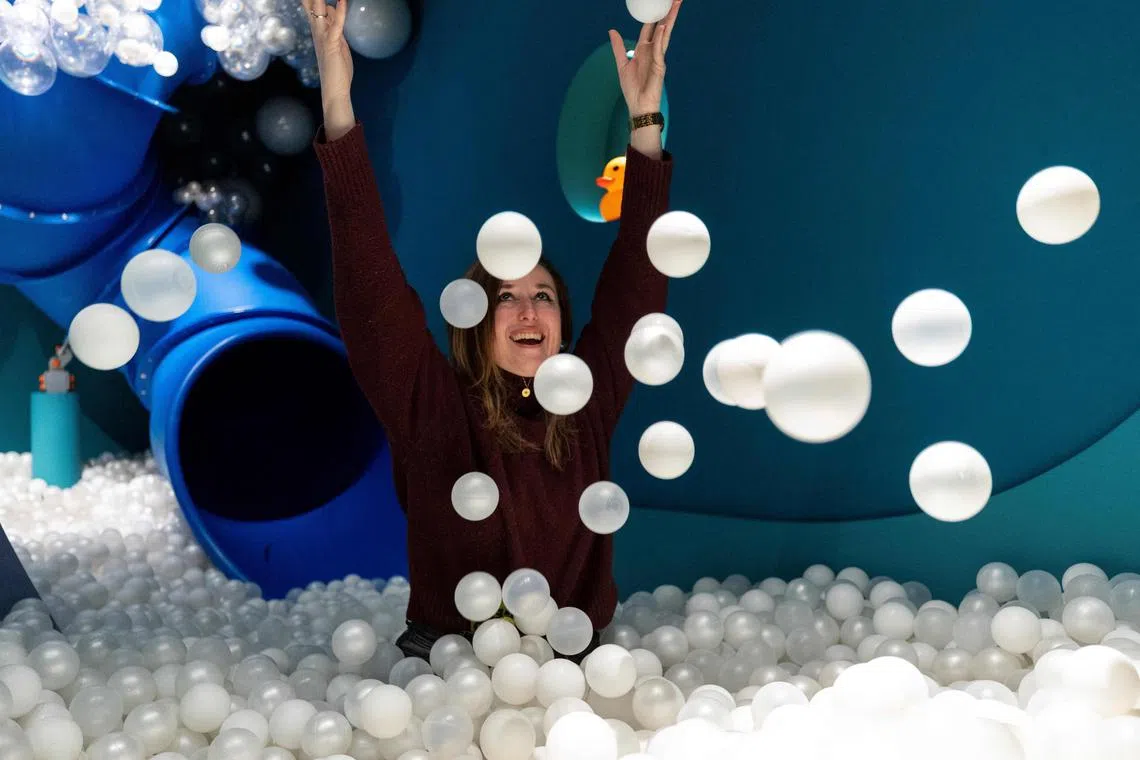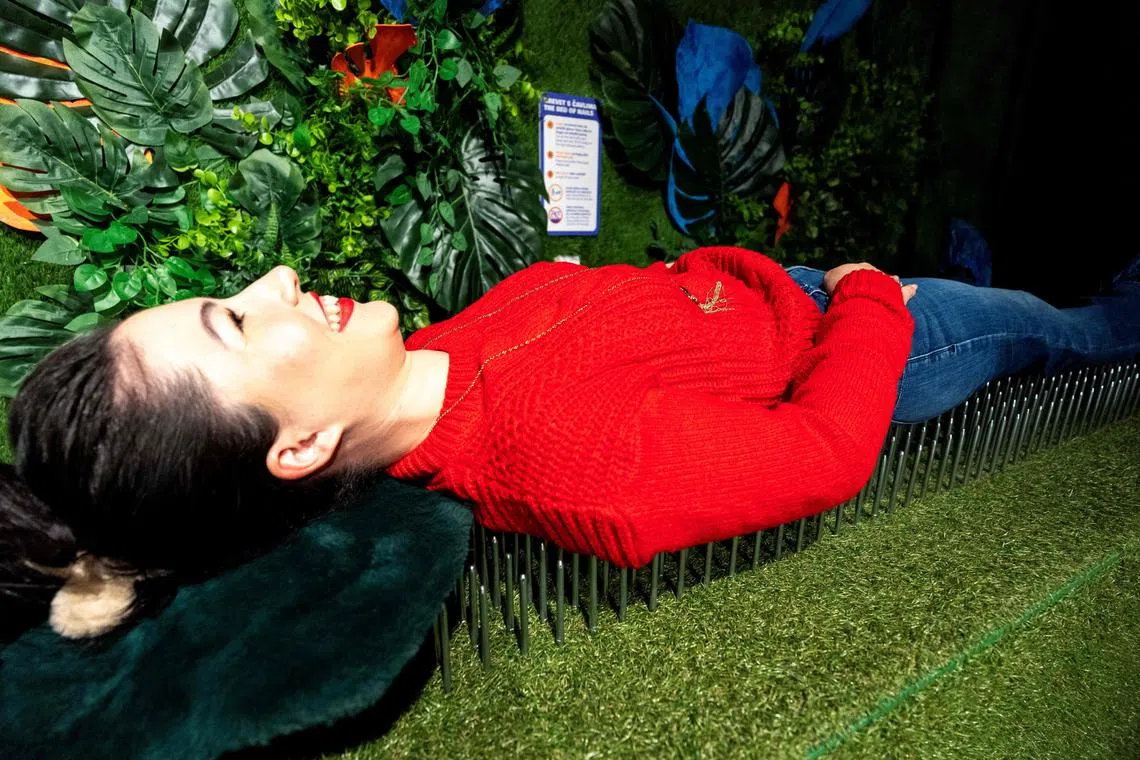Croatia laughter museum aims to blow away the blues
Sign up now: Get ST's newsletters delivered to your inbox

Visitors in stuffed costumes fighting in the "Sumo Arena" at the HaHaHouse museum of laughter in central Zagreb in January.
PHOTO: AFP
ZAGREB (Croatia) – A new museum of laughter is offering to put people through the spinner to wash away the negativity of modern life.
Visitors to the HaHaHouse in Croatian capital Zagreb are blasted with a puff of white smoke once they step inside to blow away their worries before climbing into a giant “washing machine”.
The “centrifuge of life” then whips them away Willy Wonka-style down a twisting slide into a pool filled with little white balls, where their journey to a happier place starts.
Its creator, Ms Andrea Golubic, said she had the idea for the museum during the Covid-19 pandemic, when many were feeling down, depressed and isolated.
“I realised that I had a mission – to heal people with laughter,” added the upbeat 43-year-old.

HaHaHouse founder Andrea Golubic in a pool of white balls at the museum of laughter in central Zagreb in January. The 450 sq ft museum offers eight interactive zones.
PHOTO: AFP
The idea “came straight from the heart and on that very day, I listed 78 exhibits... that’s how the HaHaHouse began”, Ms Golubic said.
She added it was her carefree seven-year-old self that inspired her – “a picture of me as a first-grader, with wide teeth and dying of laughter. I was constantly joking as a kid”.
Visitors press a button to be “disinfected from negativity” as soon as they step inside the museum, which has eight interactive zones.
One has a rubber chicken choir cheerfully cackling out hits such as Swedish pop group Abba’s Dancing Queen (1976), another has a karaoke room with distorted voices and there is a “Sumo Arena” for wrestling in puffed-up costumes.
There is also some serious history of humour from ancient to modern times told through theatre, film or the internet.

Visitors posing for pictures at the HaHaHouse museum.
PHOTO: AFP
The museum also explains humour styles, from word play and slapstick to toilet humour and satire with the help of some choice one-liners.
“I’ve had so much plastic surgery, when I die, they will donate my body to Tupperware” is one of the featured zingers from the late American comedienne Joan Rivers.
Ms Golubic said the HaHaHouse is drawing everyone from small children to seniors, with grown-ups seeing it as a good excuse to play at being kids again.
“All those who still feel a bit of childish joy and embrace their inner child will recharge themselves,” she said.
Pensioner Bruno Dadic was delighted by his visit “as there is never enough humour in life”. “Laughter is a medicine for the soul,” he added.
Zagreb’s psychiatric hospital has voiced interest in organised visits and links are also being made with schools and retirement homes.
“The museum is great,” said Aleksandar Suka, who celebrated his fifth birthday with a visit.
Accompanied by his mother, the little boy said he loved lying on the “Bed of Nails” since they tickled him.

A woman lying on the “Bed of Nails” at the HaHaHouse museum.
PHOTO: AFP
Singer Zorica Bucic, from the coastal town of Split, said the space was perfect for current times “when we are bombarded with so much bad news”.
“Entering here is like entering childhood, being relieved of all problems. If you could come here more, there would be no need to pay a psychologist,” she added.
Indeed, laughter is a defence mechanism which gives people strength to face their problems, according to psychologist Petar Kraljevic, who said he loved the idea too.
“If a prescription for three hours of laughter per 24 hours could be written and followed, that would certainly give positive results.” AFP


